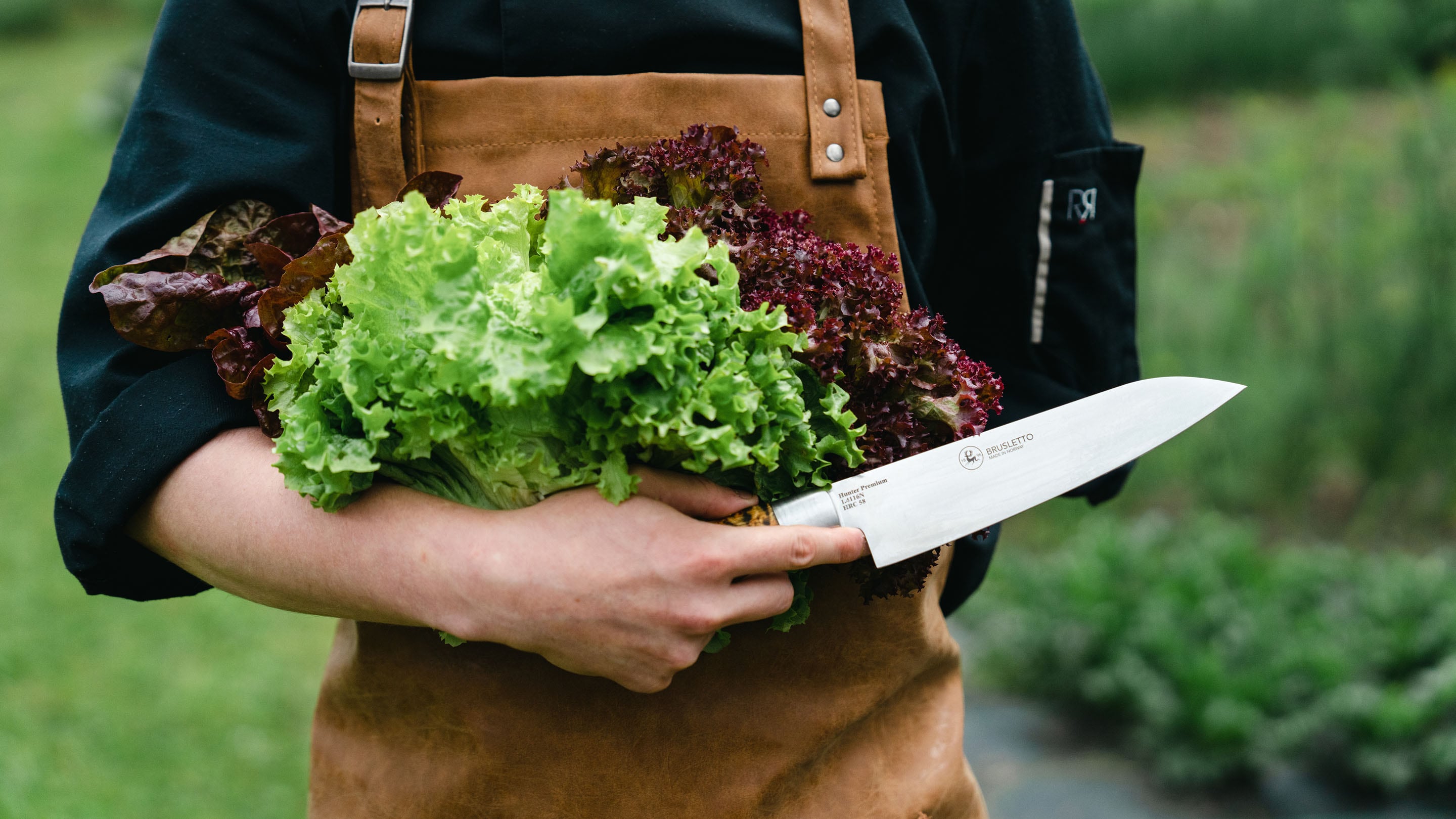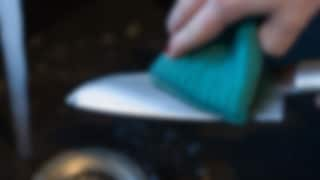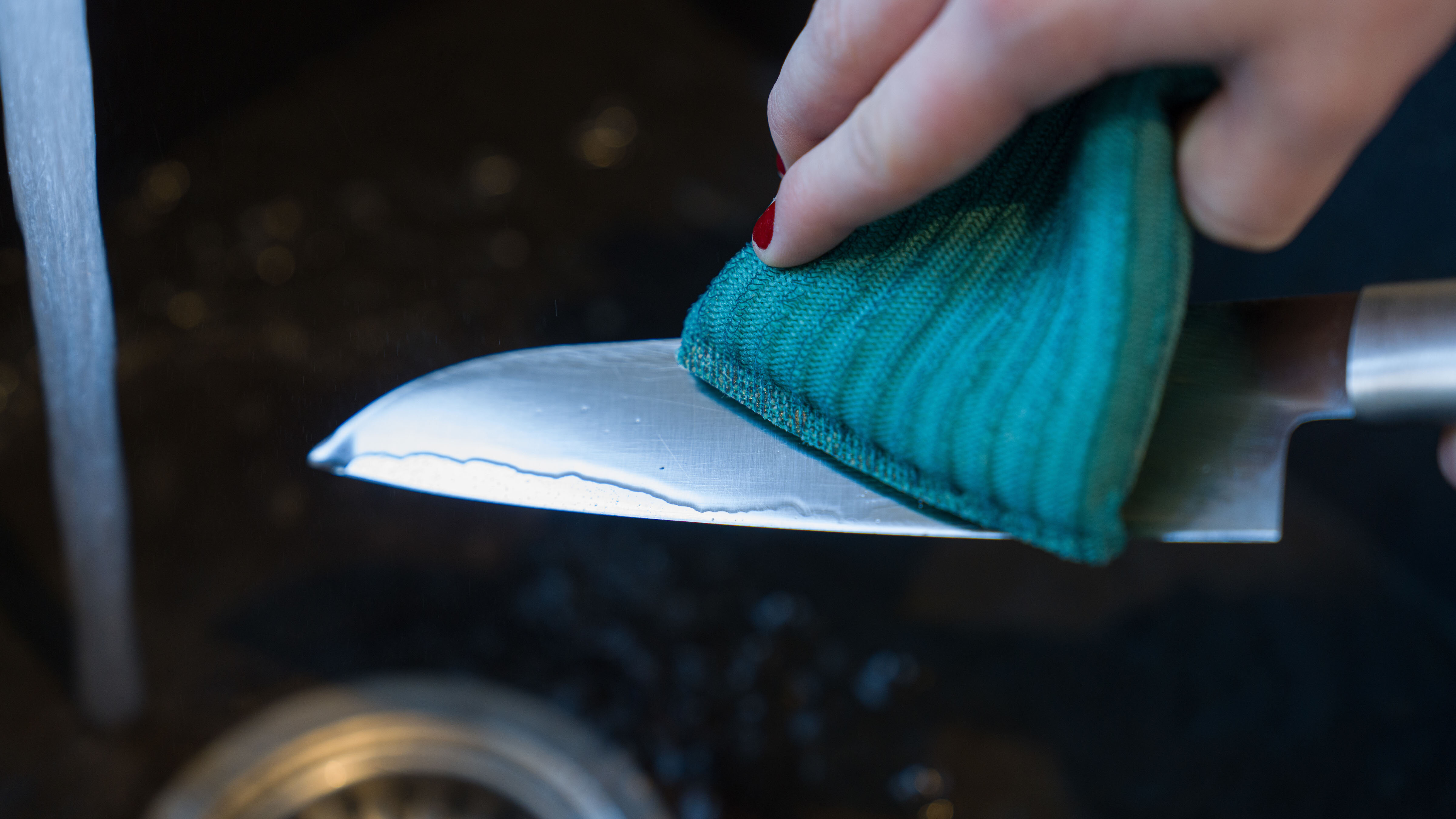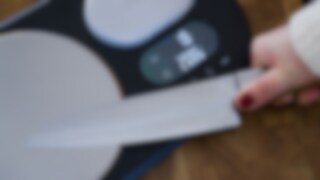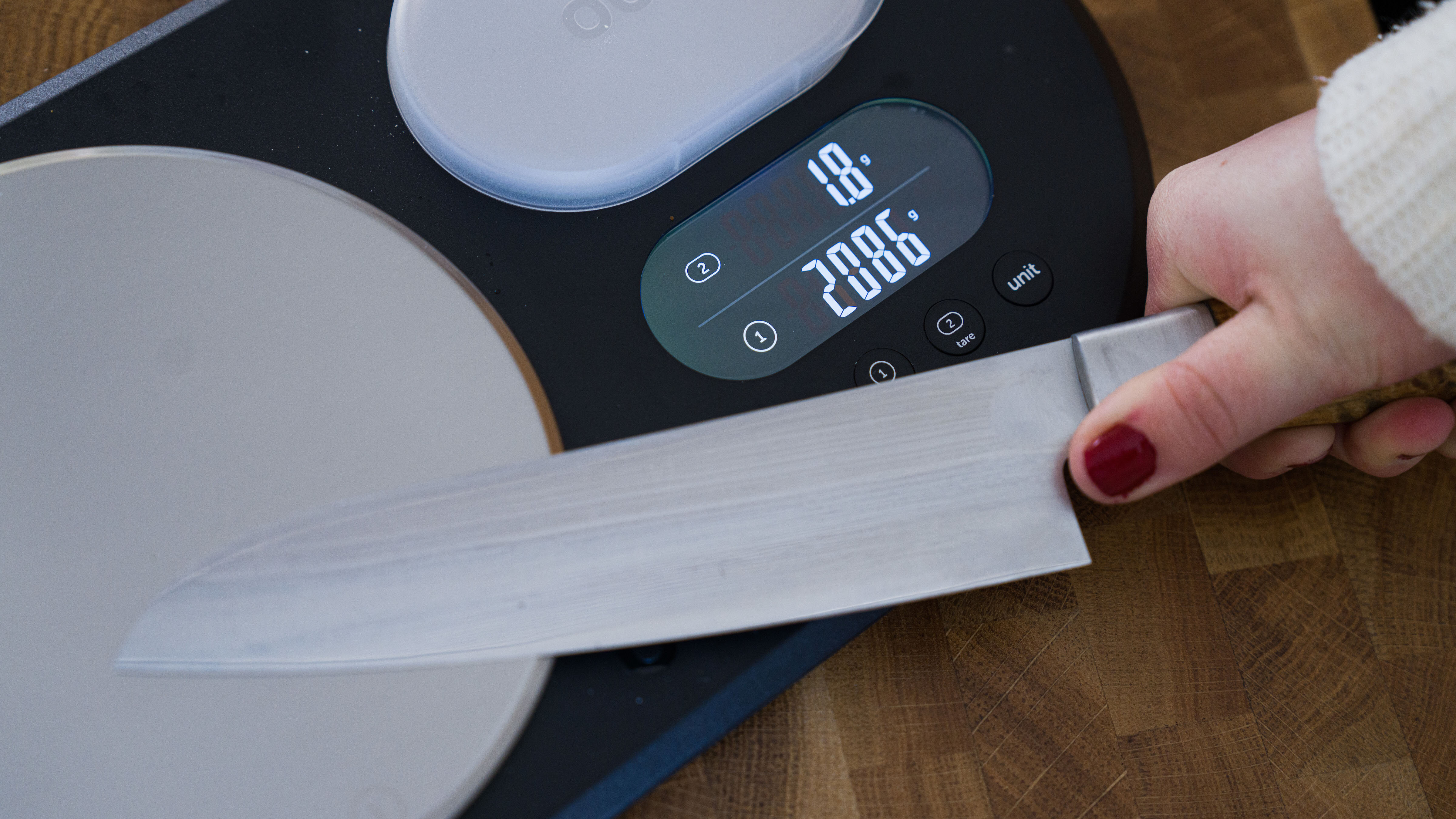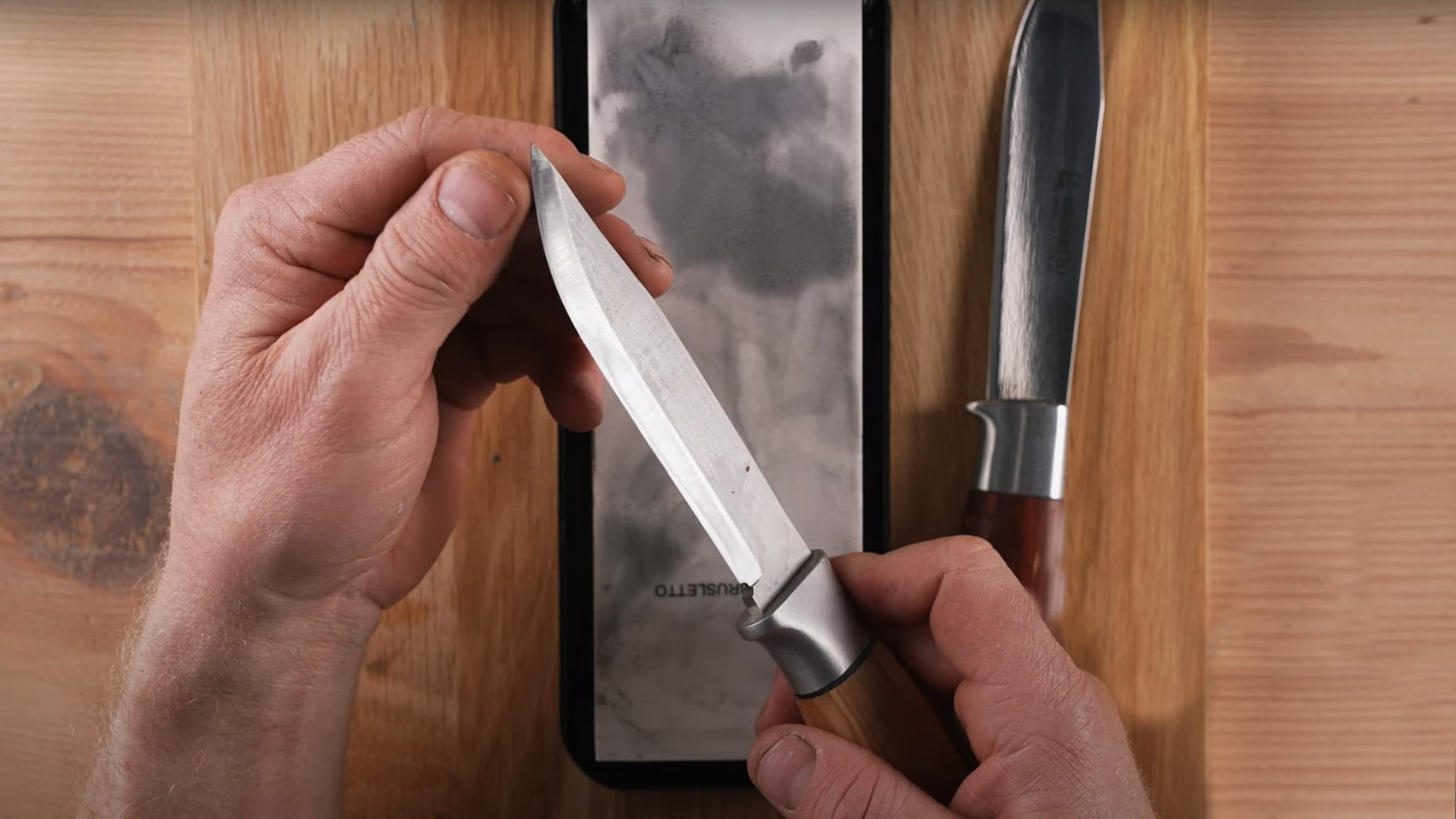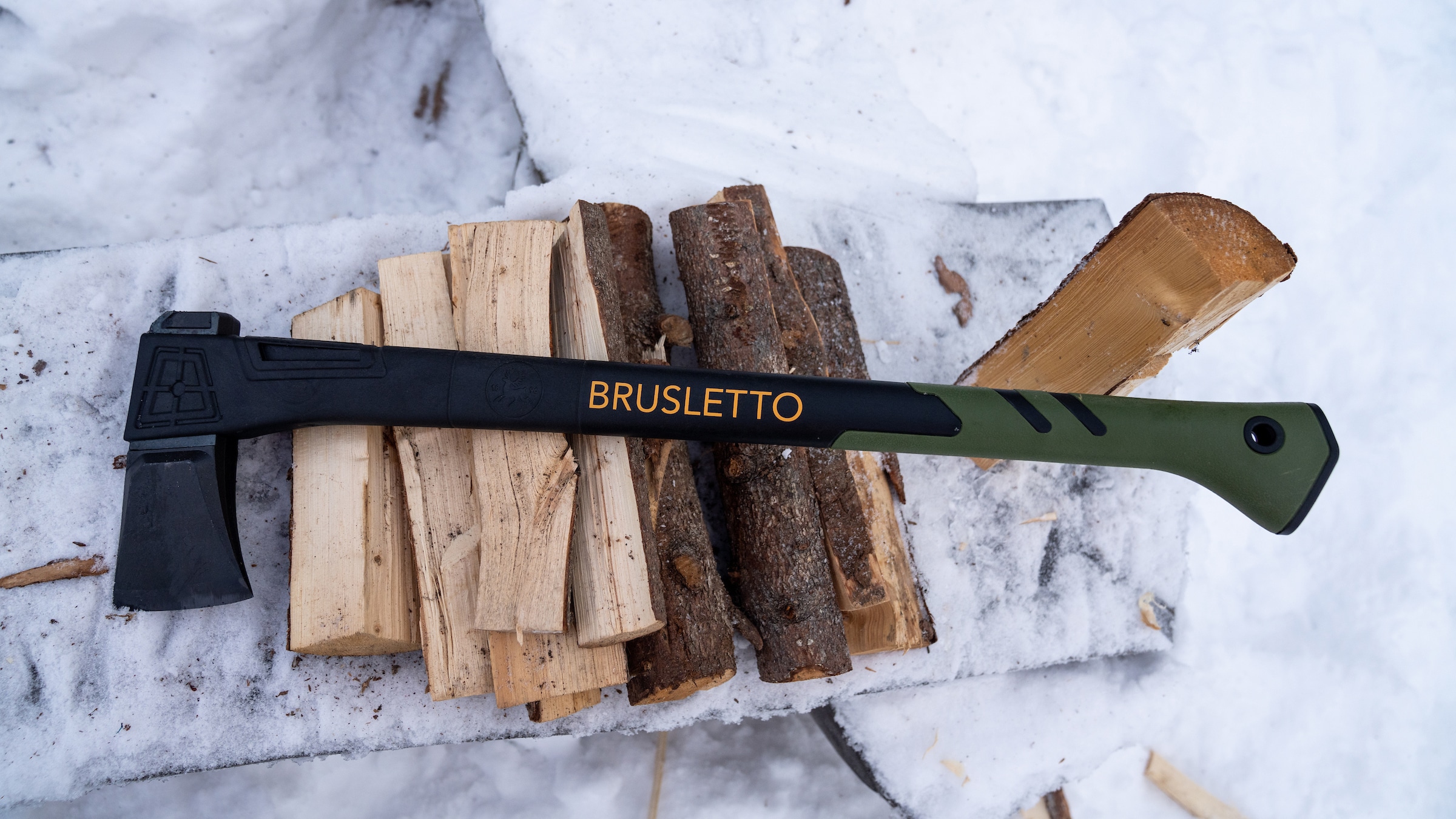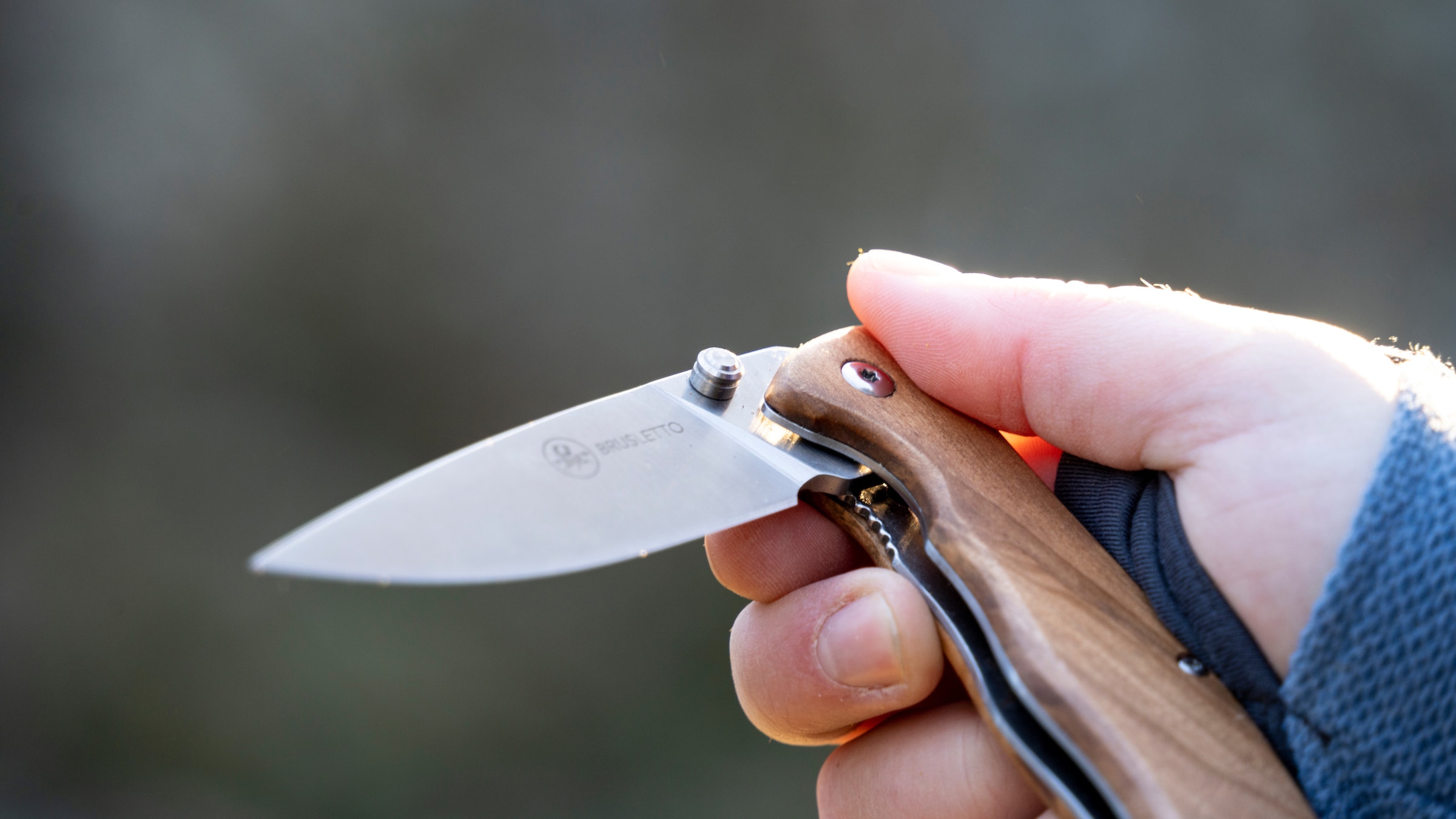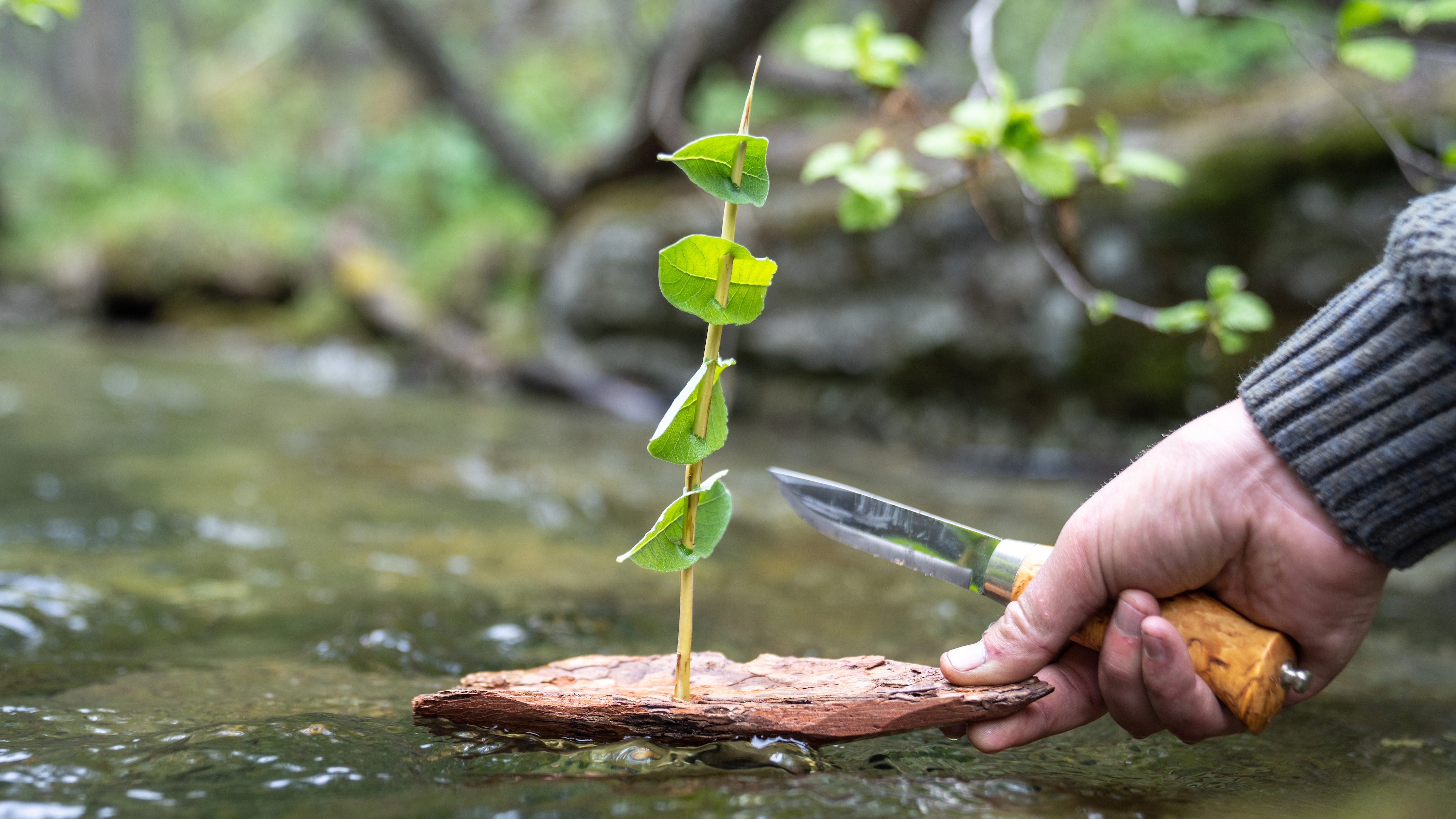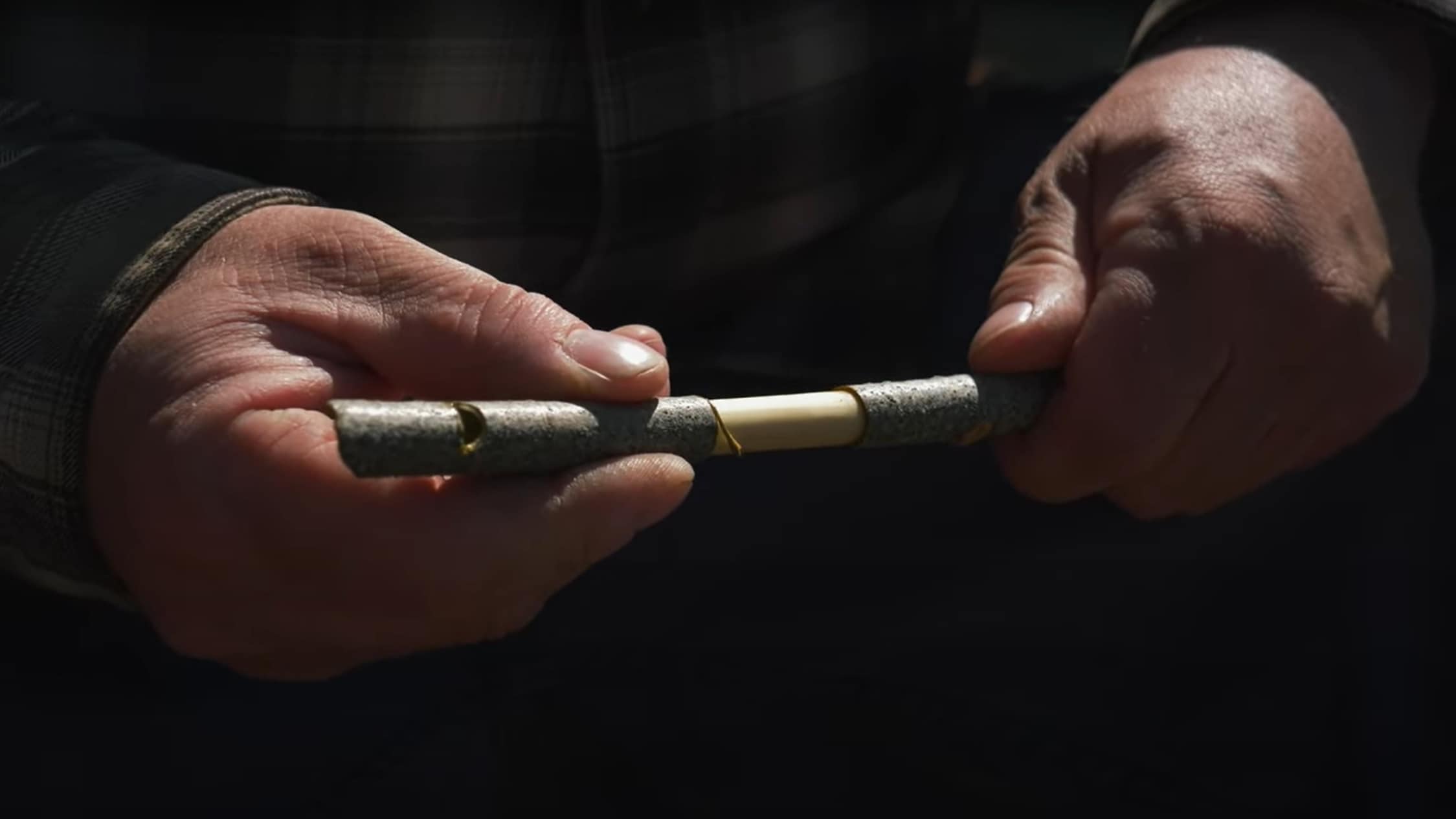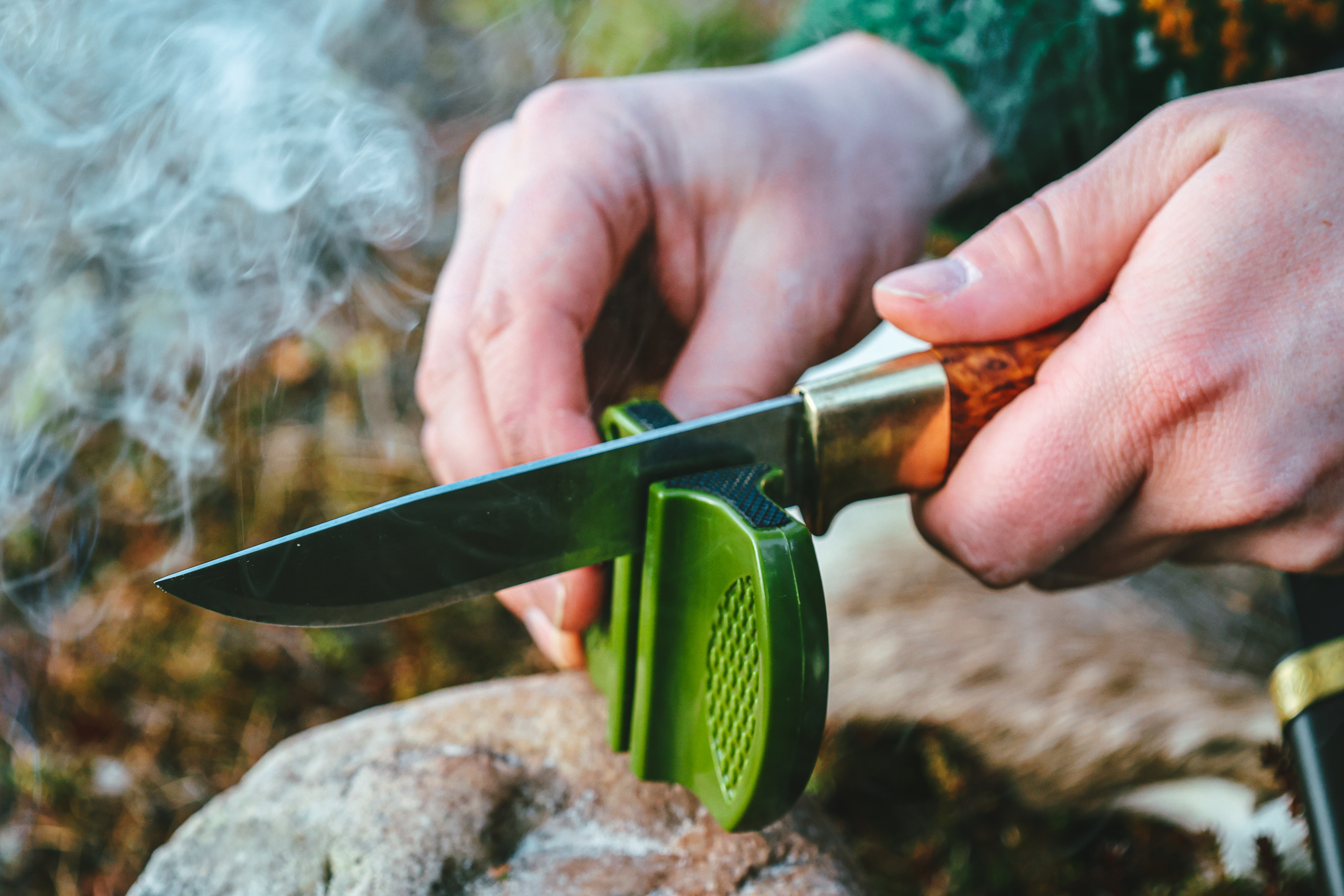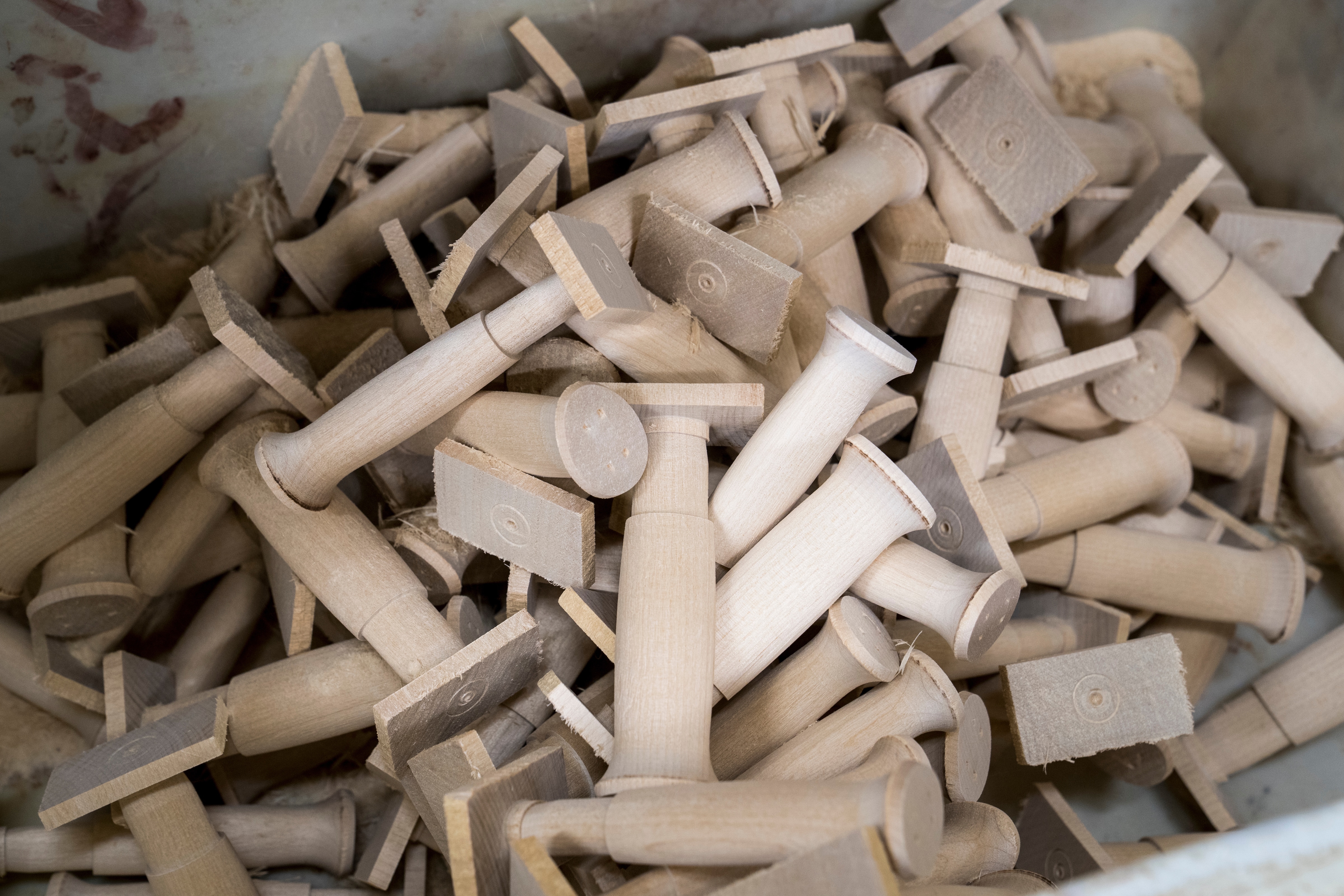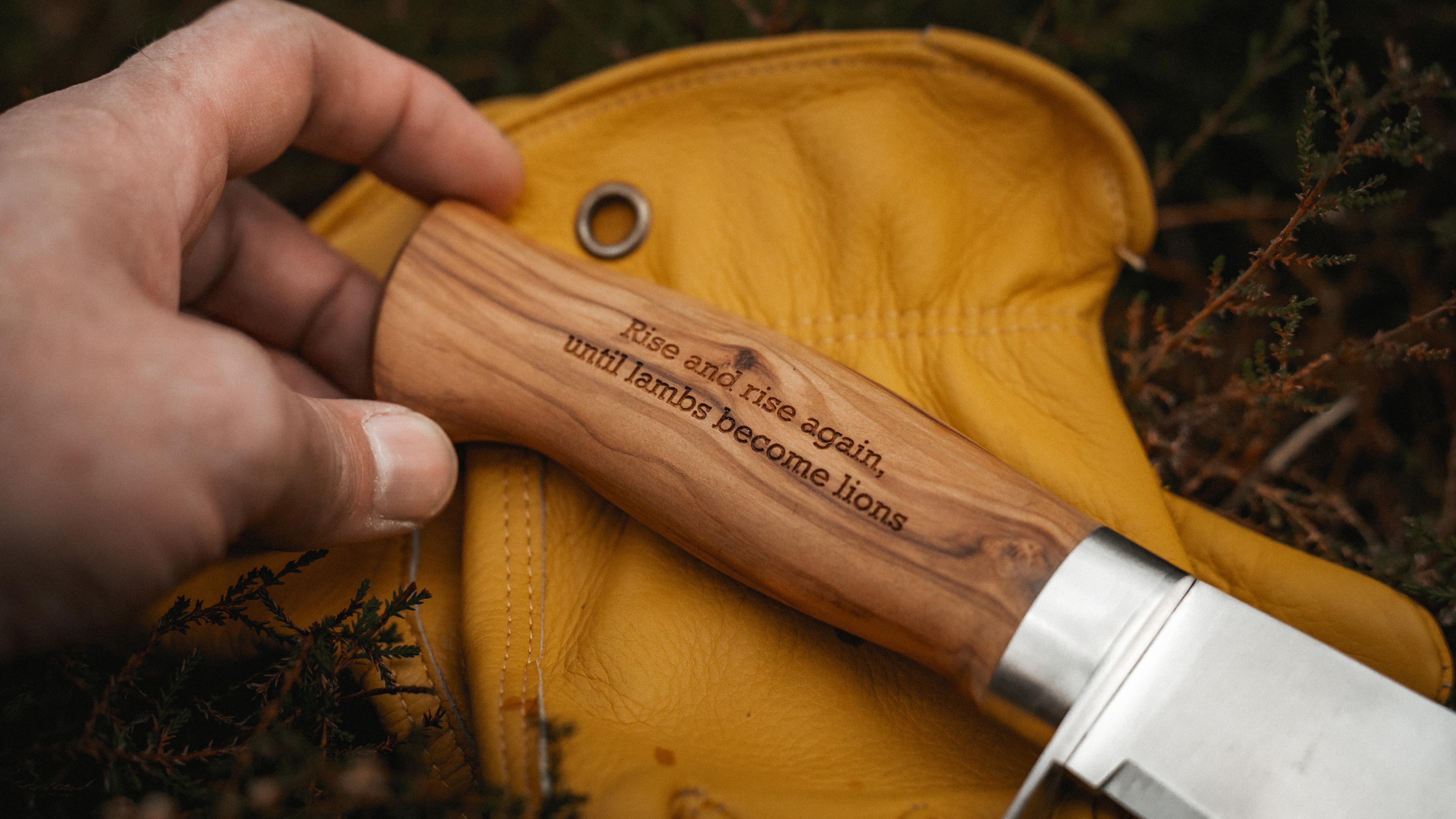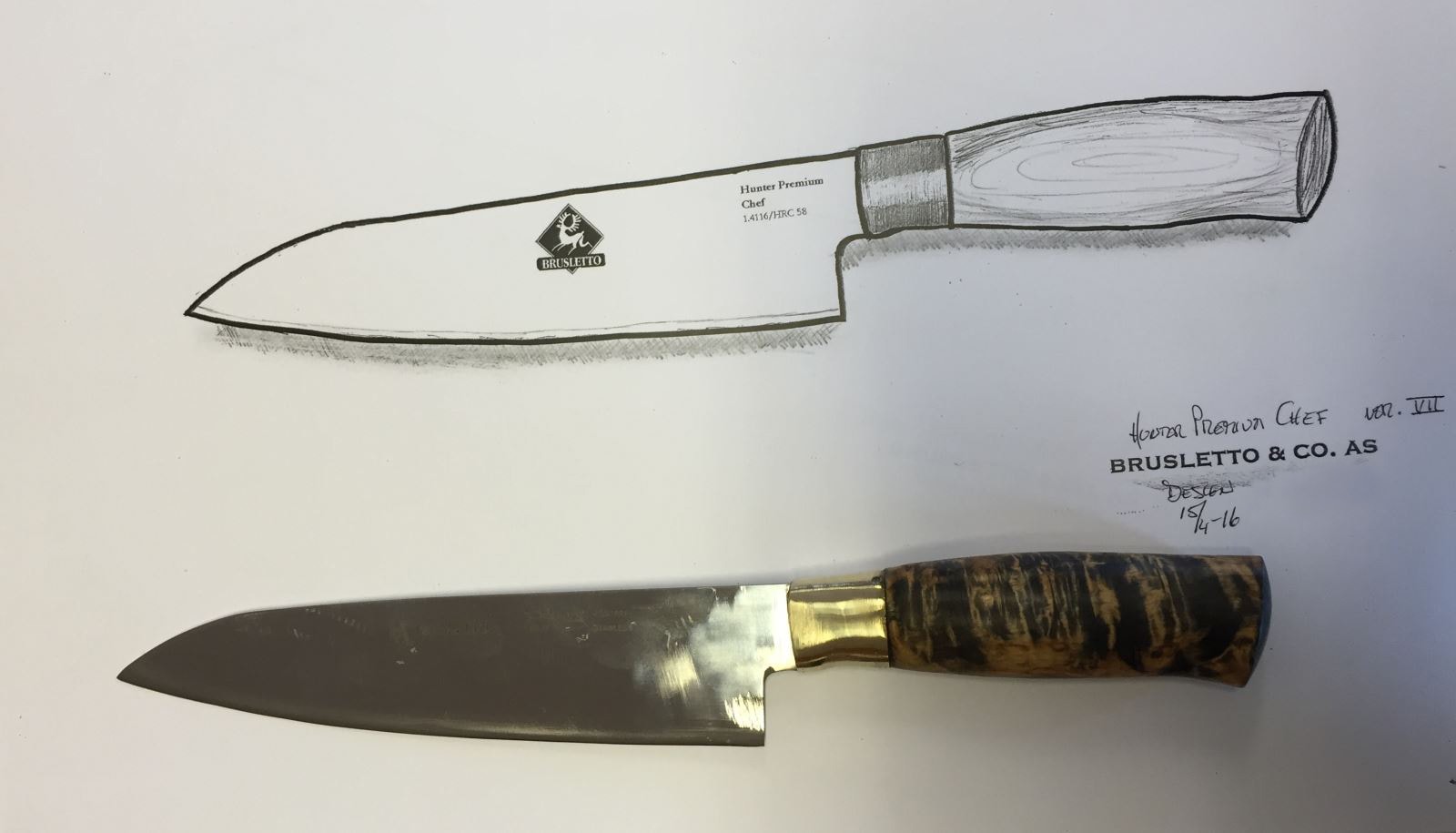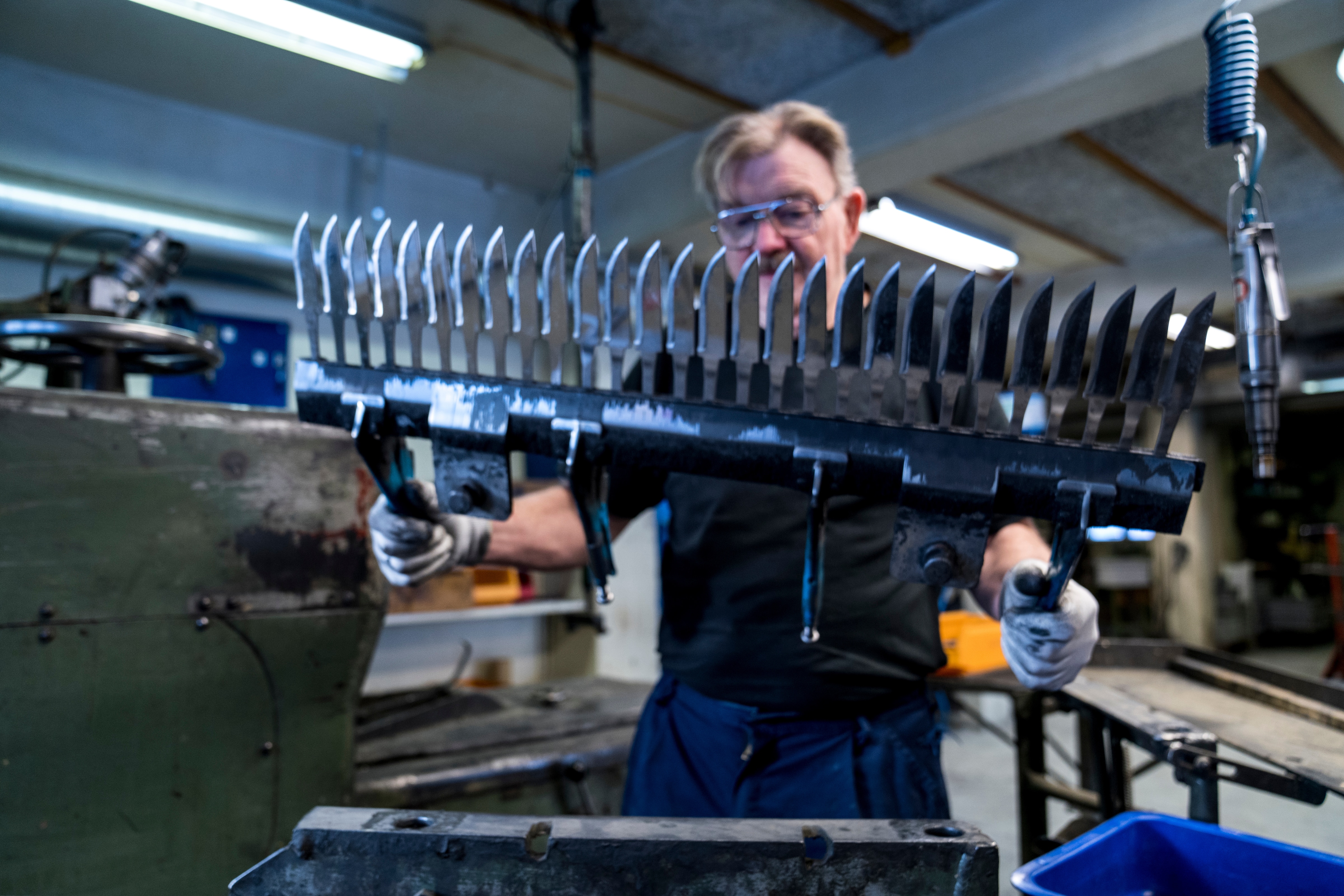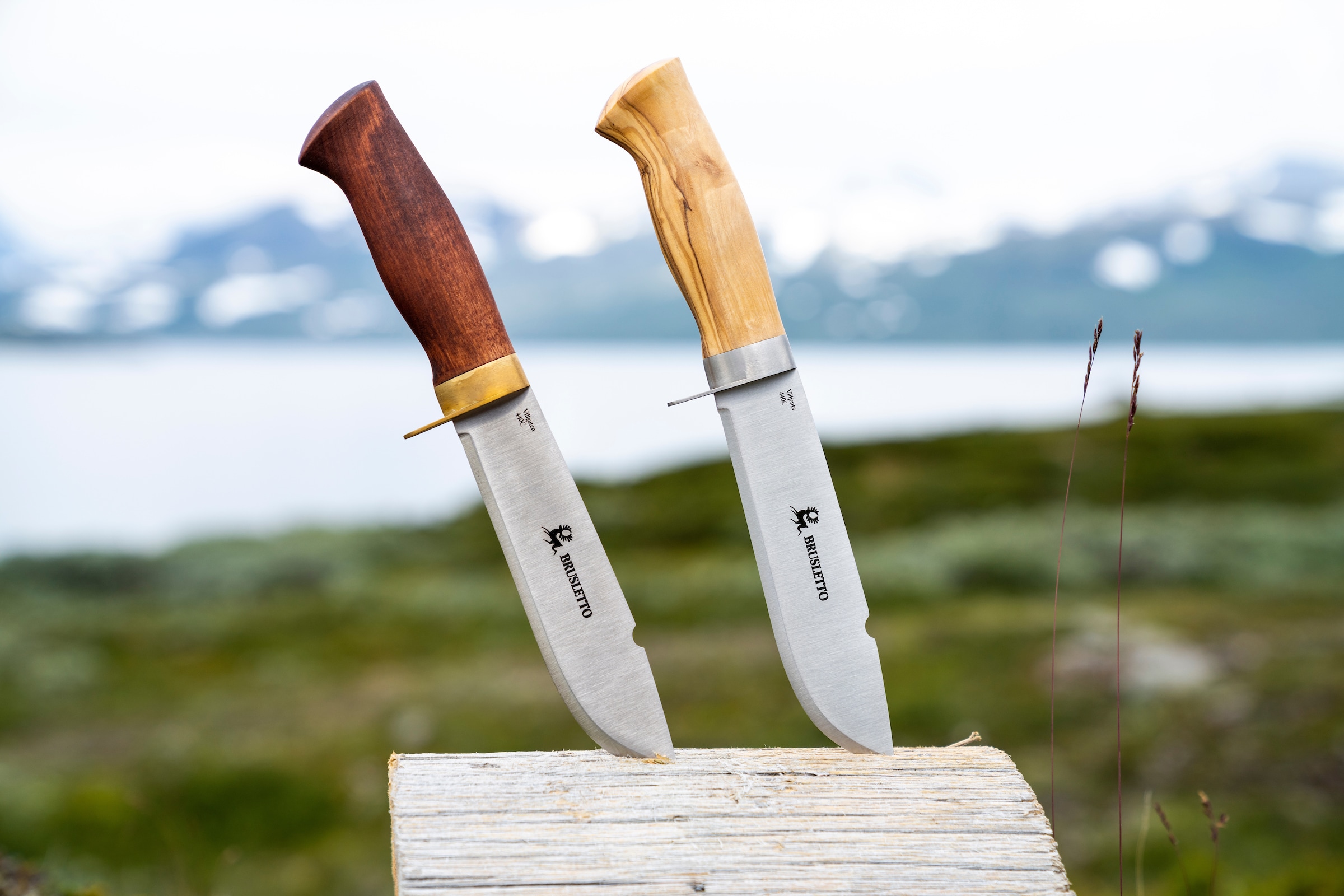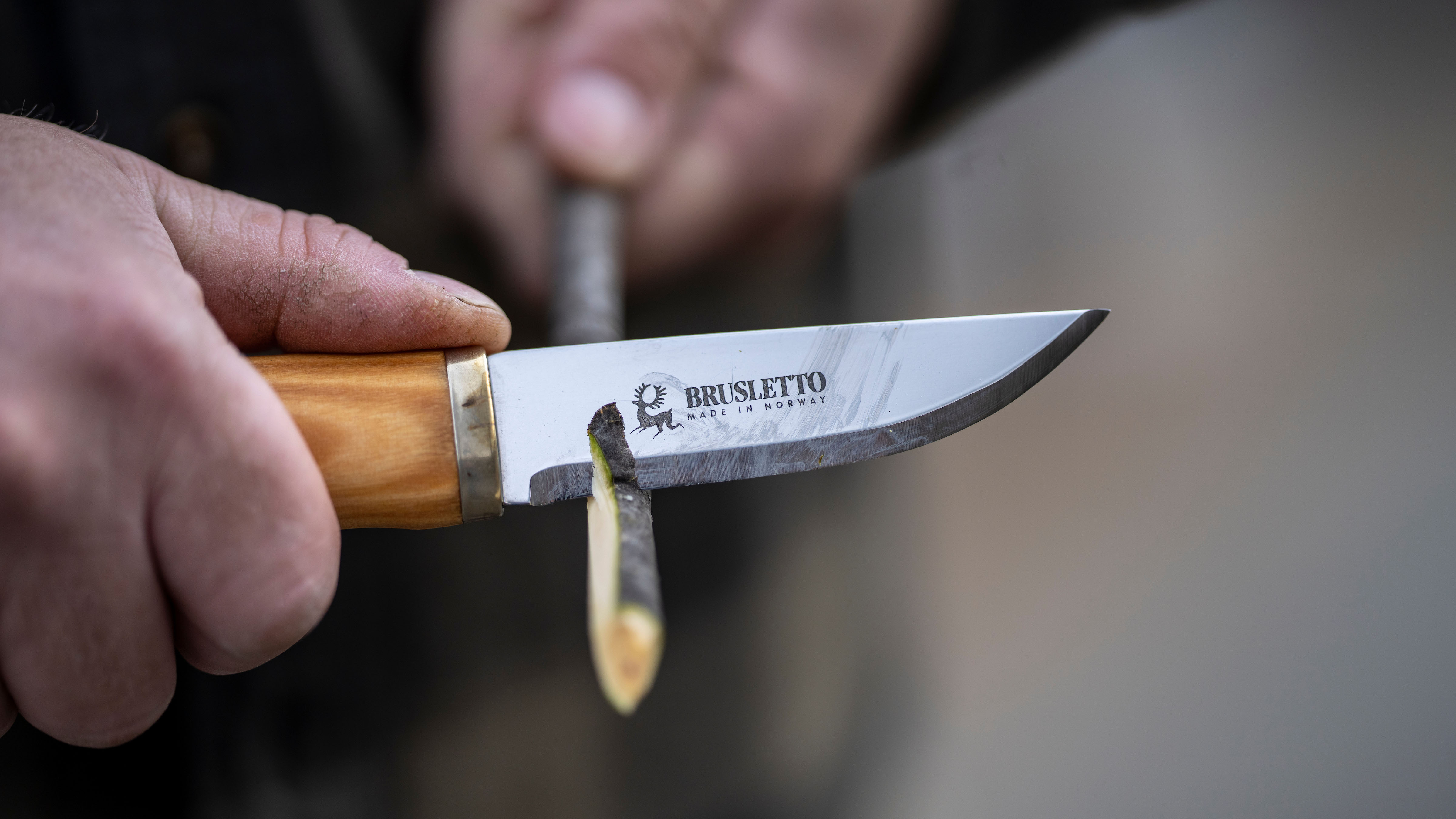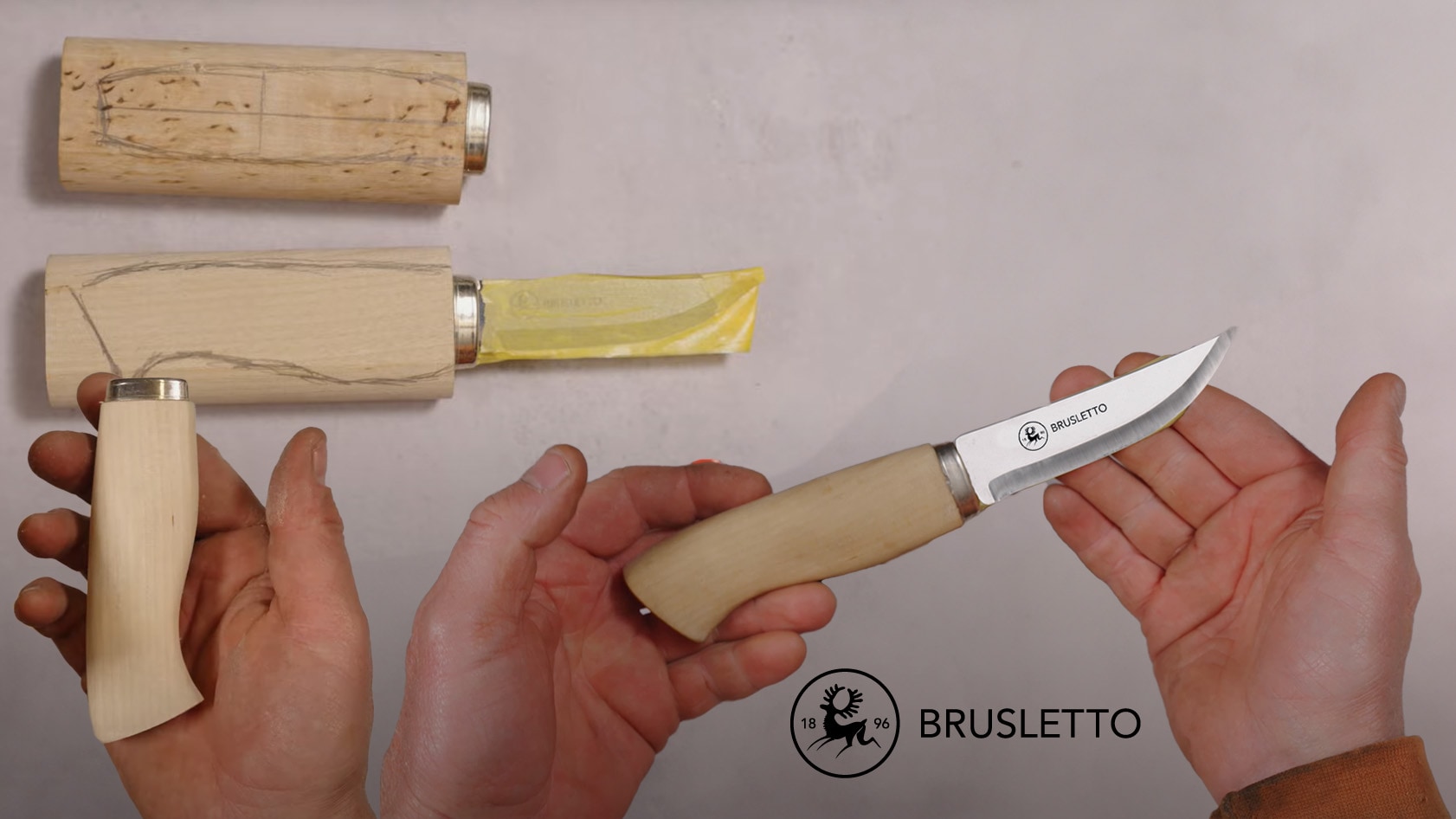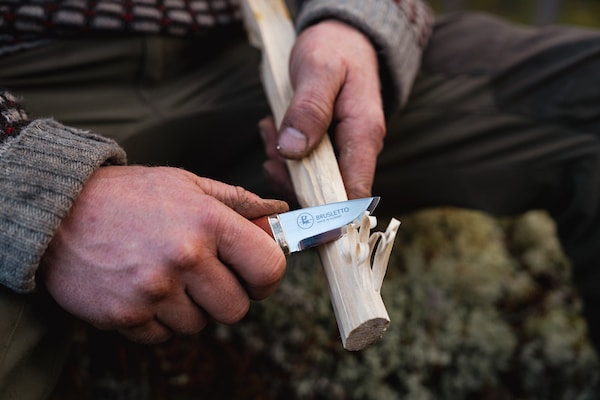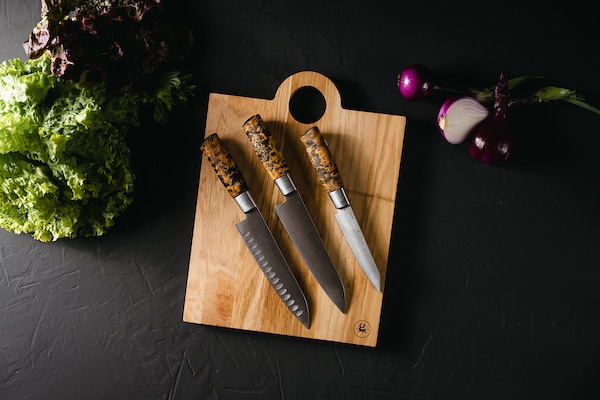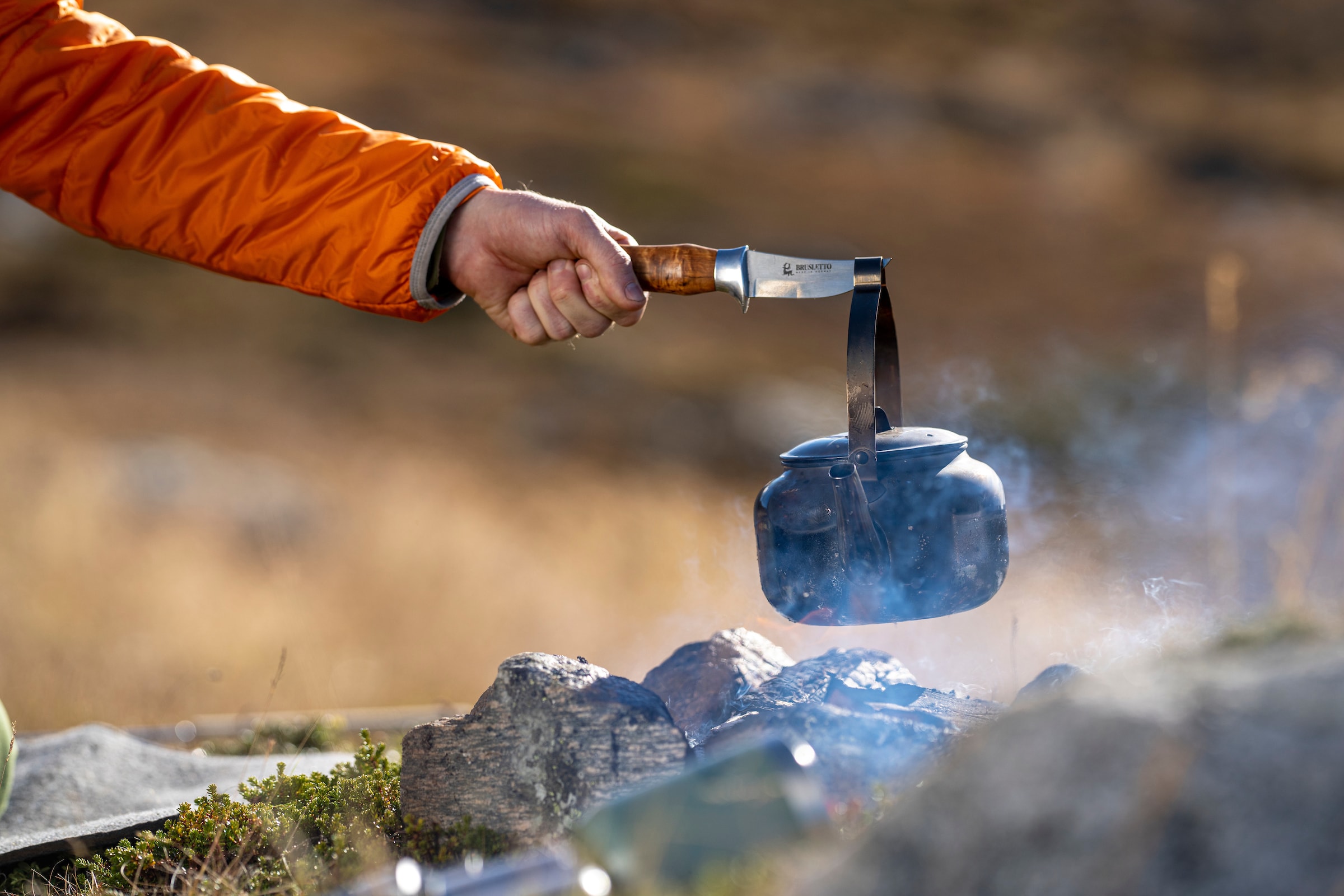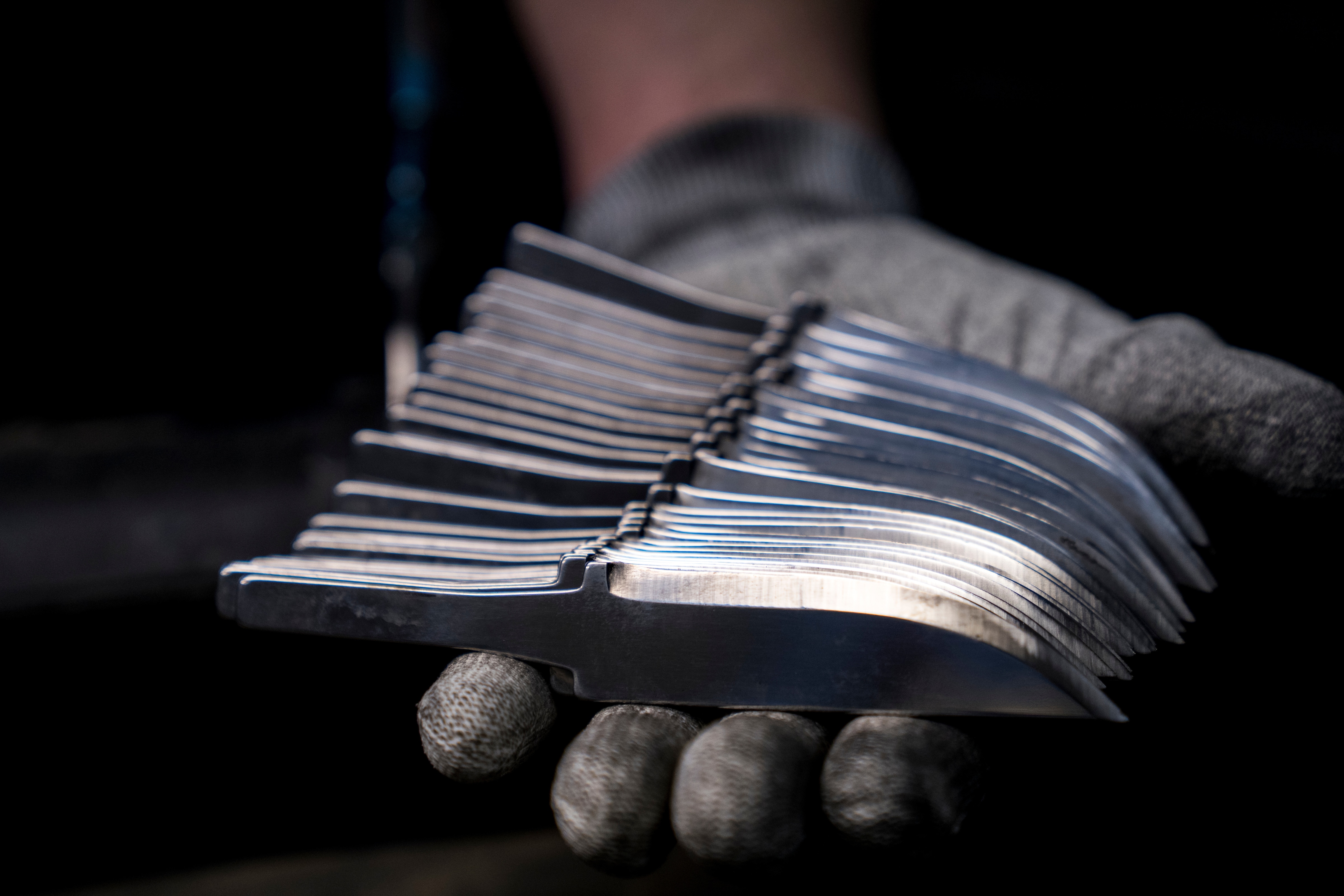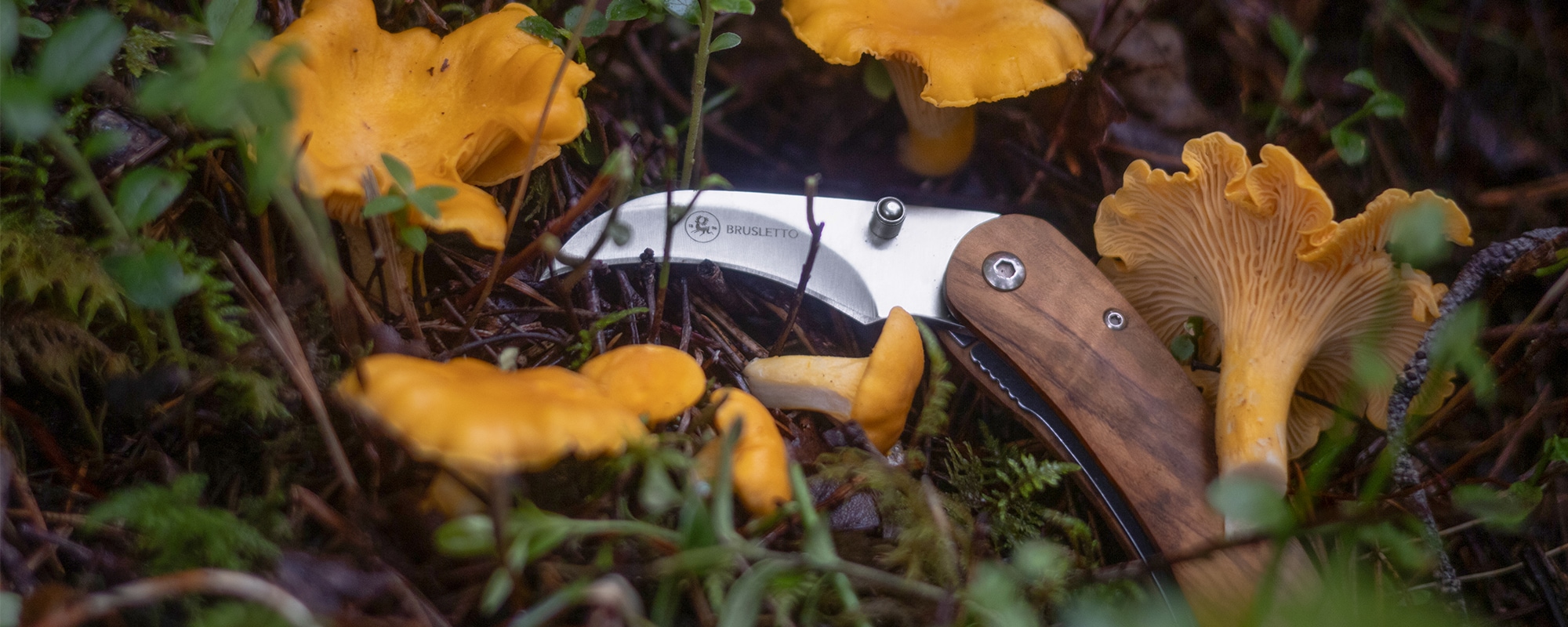Tips
Take care of your kitchen knives
Brusletto has a wide selection of kitchen knives, and we want the knives to last as long as possible. In order to have sharp and nice kitchen knives for a long time, there are certain things you should, and shouldn't do with them. Here are some simple tips:
1. Use the kitchen knives only for cutting food
Our kitchen knives are designed to cut fresh food. Avoid cutting into, for example, frozen food and ice. We also do not recommend that you use our kitchen knives to cut bones, due to the thin knife edge. Furthermore, you should not use the kitchen knives as a meat axe.
We do not recommend cutting food against hard materials, and especially not against surfaces that are harder than the knife (for example glass, granite, metal and ceramics).
Ideally, you should have a cutting board made of wood or plastic. If the cutting felt is so soft that you can make marks in it with the knife, it is soft enough. If you have many, deep marks in your cutting blade, it may mean that you are cutting too hard. You should consider replacing cutting blades with many deep marks, as this can create a good breeding ground for bacteria.
Tip: don't use the knife edge to scrape food off the blade, use the back of the blade instead. Remember that the less contact the egg has with the surface, the longer it stays sharp.
Also remember to wash both sides of the wooden felt when you wash it after use: if you only wash one side, the cutting felt can crack when it dries.
3. Hand wash the knives; do not use dishwasher
Wash the knife well, and dry them immediately with a dishtowel. Do not let the knives air dry.
It can be tempting to save a few minutes by putting the kitchen knives in the dishwasher, but there are several reasons why we don't do it. A mix of strong chemicals and hot temperatures over a long period of time means that the kitchen knives with handles made of Masur birch will be destroyed. Even if the handle is treated, water will be able to seep into the wooden handle and cause it to crack. Our other kitchen knives with composite handles can withstand the dishwasher, but we advise against it anyway. One reason is that the knife blades will quickly become dull when they are washed in a machine. Our knives are stainless and not stain-free, which means that increased time in water can lead to faster rust formation. Therefore, try to keep the knives in water for as short a time as possible, and we also do not recommend soaking the knives in water for a long time. Wash with mild dish soap and dry immediately with a dishtowel. The knife can then air dry for a couple of minutes before you put it in place.
4. Avoid storage in the kitchen drawer
Avoid storing knives in a pile in a kitchen drawer. The knives will be shaken against each other, and the knife edges will be exposed to rubbing and impact. It can also be scary rummaging around in a drawer full of sharp knives. We recommend hanging them on a magnetic strip or using a knife block.
5. Maintenance of the handle
Our chef's knife series Hunter Premium has Masur birch in the shaft. Masurbjørk is a birch where tissue from the bark has grown into the tree, forming a fine pattern. The shaft is inserted with linseed oil and then polished so that it is almost maintenance-free. If maintenance is required, the shaft can be inserted with oil, for example a furniture oil or similar.
Our other chef's knives have high-quality composite handles, and these are maintenance-free.
6. Sharpening and sharpening the knife
Keeping your knives sharp is one of the most important maintenance tasks you can do.
Sharpening is something that is done every time you use the knife, in order to maintain the edge in the best possible way. This is done with a sharpening steel. It is the last finish that makes the knife stay sharp for a longer time. If the knife has become dull, however, the edge must be sharpened again. That is to say, you remove a bit of the steel to get a sharp edge again.


